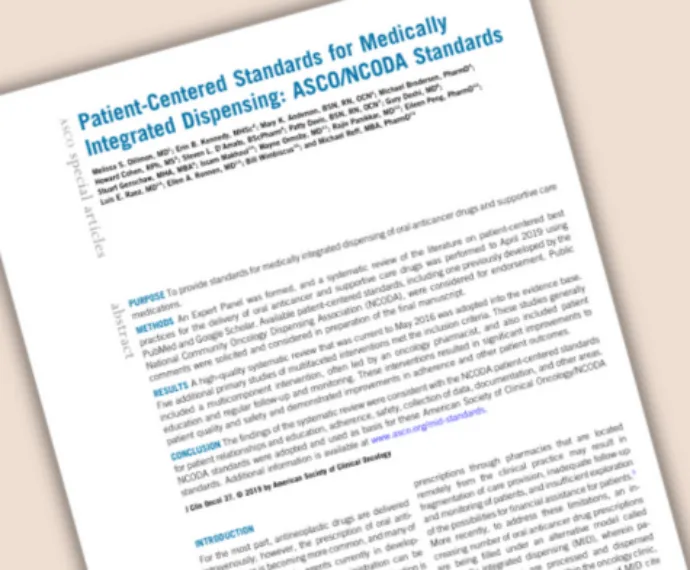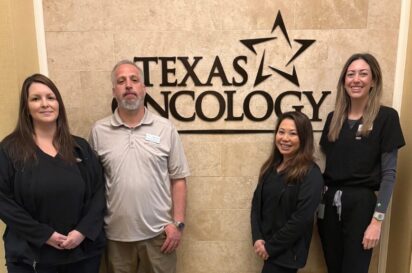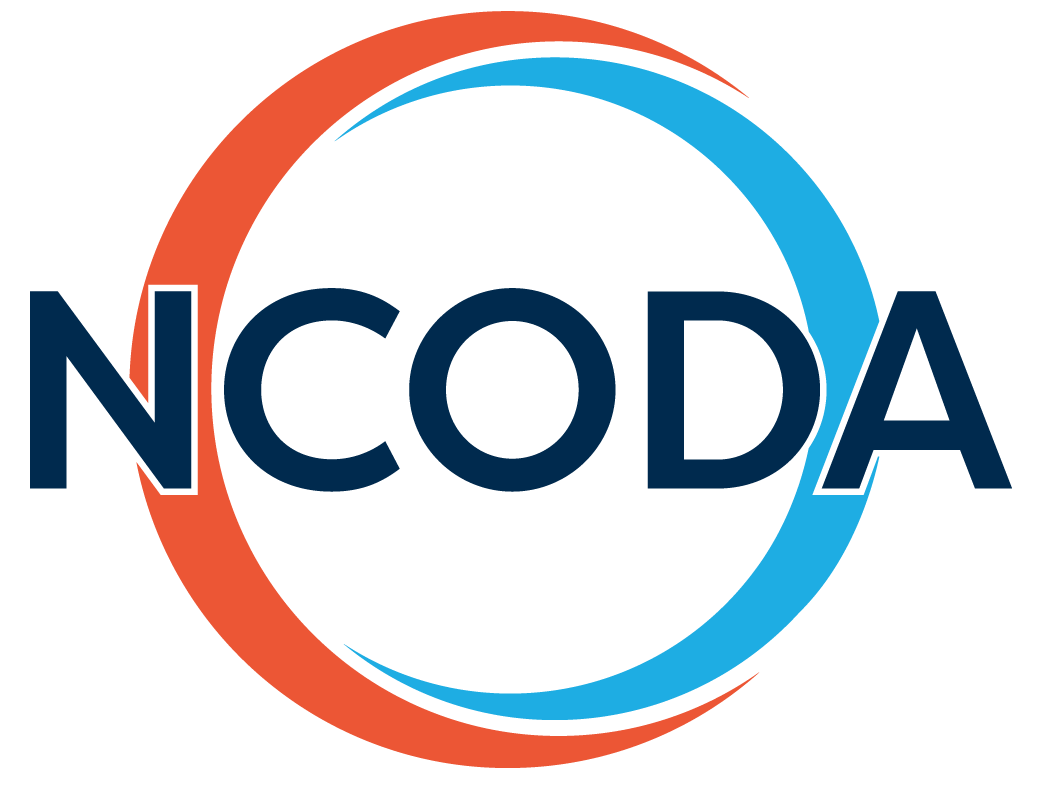2026 International Spring Forum
April 15, 2026 | 12:00 PM EST
Medically Integrated Pharmacy: Enhancing Patient-Centered Oncology Care
Through an integrated oncology care model, patients are provided a more comprehensive approach that brings together all aspects of a patient’s cancer treatment—including pharmacy services—within a single, coordinated site of care. By embedding the pharmacy directly into the oncology practice, patients receive more streamlined, supportive, and effective treatment.

A Medically Integrated Dispensing Pharmacy (MIP) as defined by NCODA is a dispensing pharmacy within an oncology center of excellence that promotes a patient-centered, multidisciplinary team approach. This innovative approach improves outcomes by providing seamless coordination, personalized support, and comprehensive services—all within the same site of care.

Integrated Pharmacy Compared to Traditional Pharmacy in Oncology
Traditional pharmacy dispensing is defined as the process of medication dispensing activities that occurs separately by a pharmacist from a prescription written by a physician. This dispensing model creates a fragmented approach to cancer care, limiting access to crucial clinical information beyond the prescription and medication list. As a result, important treatment decisions may be made without a full picture of the patient’s needs, potentially impacting care and outcomes. The MIP model addresses these challenges by providing a more integrated and comprehensive approach, ensuring that oncology patients receive the most informed and effective treatment possible.
Why Medically Integrated Pharmacies Matter
In oncology, access to timely and effective treatment is critical. MIPs are designed to streamline the delivery of oral cancer therapies while enhancing communication between pharmacists, physicians, APPs, nurses, pharmacy technicians, and patients.
Medically Integrated Pharmacies provide personalized care plans by coordinating closely with clinical teams, ensuring patients receive continuous support and guidance. This tailored approach helps patients feel more engaged and supported throughout their treatment journey.
With direct collaboration between pharmacists and healthcare providers, patients are less likely to miss doses or abandon therapy. Real-time intervention and follow-ups ensure patients remain on track with their prescribed treatments, minimizing gaps in care.
Pharmacists work together with physicians to identify potential adverse effects, drug interactions, and risks early. This comprehensive monitoring promotes patient safety while optimizing treatment outcomes and preventing therapy abandonment due to unforeseen complications.
On-site dispensing and streamlined insurance coordination reduce delays and financial barriers, ensuring patients get timely access to their medications. Integrated pharmacies often help patients explore financial assistance programs, making medications more affordable and reducing the likelihood of abandonment due to cost concerns associated with financial toxicity often associated with Oral Anticancer Medications (OAM).
MIPs enhance financial efficiency by minimizing medication waste through proactive clinical reviews, close monitoring of patient adherence, and dose adjustments. By delaying refills until follow-up appointments or stopping unnecessary prescriptions, MIPs help avoid costly waste and optimize treatment. Studies have shown that MIPs provide substantial cost savings for both patients and healthcare providers, reducing excess spending while ensuring effective use of medications.
Pharmacists within medically integrated settings play a vital role in educating patients about their medications, expected outcomes, side effects, and how to manage them. This knowledge empowers patients to take control of their care and fosters better adherence, reducing the risk of treatment dropout.

Patient-Centered Medically Integrated Dispensing: ASCO/NCODA Standards
NCODA, in collaboration with an expert panel of leading oncology healthcare providers, led the development of patient-centered MIP standards to ensure the quality and safety for every patient that is prescribed oral anticancer medications. These standards were adopted by ASCO and NCODA (Patient-Centered Medically Integrated Dispensing: ASCO/NCODA Standards) and published as the leading guidance for all members of the integrated oncology care team.
Read StandardsNCODA Pillars of Medically Integrated Dispensing
MIPs address key challenges in cancer treatment by reducing medication abandonment, improving access and affordability, and enhancing adherence. This patient-focused approach ensures timely access to oral anti-cancer medications (OAMs) while providing personalized care and ongoing support.
NCODA’s Pillars of MIP highlight the critical areas that drive better outcomes: abandonment, adherence, access & affordability, time to fill, education, satisfaction, and cost avoidance. By streamlining processes and offering proactive intervention, MIPs help patients stay on track with treatment, minimize financial burdens, and achieve improved overall care.

Stories of Impact from Integrated Oncology Practices

Perspectives
Navigating a Cancer Journey with Communication and Coordination
Alabama Oncology shares how its medically integrated pharmacy model builds trust, streamlines care, and improves outcomes through constant communication, coordinated teams, and dedicated patient advocacy.
August 13, 2025

Perspectives
Caring for Patients in Every Step of their Journey
NCODA recently sat down with members of the pharmacy team at Hematology-Oncology Associates of Central New York (HOACNY) to discuss the advantages of a medically integrated practice in their experience.
March 31, 2025

Perspectives
The Increasing Importance of Coordinated Care in a Fractured Healthcare System
Continuing in our series highlighting advantages of the medially integrated pharmacy (MIP) model and how members are making a difference in the future of oncology care, we recently spoke with Kirollos Hanna, PharmD, BCPS, BCOP of Minnesota Oncology.
March 31, 2025

Perspectives
High Tech, High Touch: The MIP Model at Texas Oncology
As we look at the implementation and value of the medially integrated pharmacy (MIP) model and how members are making a difference in the future of oncology care, we recently spoke with Texas Oncology leaders Gury Doshi, MD, hematology and medical oncologist, and Neal Dave, PharmD, executive director of pharmacy operations, for their perspectives.
March 31, 2025

Our Mission: Advancing Quality Cancer Care
NCODA’s Mission is to support medically integrated pharmacy practices and empower healthcare providers with the tools, resources, and best practices needed to deliver high-quality oncology care. We are dedicated to improving patient outcomes, enhancing medication access, and fostering collaboration across the oncology community.
LEARN MORE





